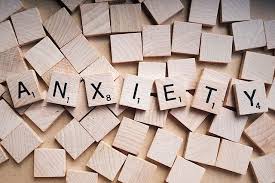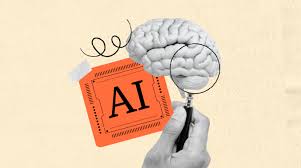Confronting Africa's Mental Health Crisis

Mental health issues are quietly surging across Africa, an urgent crisis that remains largely ignored and chronically underfunded.
While conversations around physical health challenges like HIV/AIDS, malaria, and Ebola often dominate headlines in recent times, the profound impact of mental health conditions like depression, anxiety, and PTSD continues to be relegated to the shadows.
This neglect is rooted in a complex interplay of historical, economic, and cultural factors. For decades, global health initiatives have prioritized communicable diseases, directing vast resources toward combating epidemics that pose a clear and present threat.
Consequently, the development of robust mental healthcare infrastructure—including the training of psychiatrists and psychologists and the establishment of dedicated treatment facilities—has been consistently deprioritized.
This systemic underfunding is compounded by a deep-seated social stigma where mental illness is often misunderstood as a spiritual failing or a curse, rather than a medical condition.
This powerful cultural narrative prevents individuals from seeking help and contributes to a cycle of silence and shame, ensuring that the crisis remains largely invisible to policymakers and the public alike.
SOURCE: Google
In many African communities, deep seated stigma and traditional beliefs often attribute mental illness to spiritual afflictions, witchcraft, or moral failings rather than medical conditions.
This perspective frequently prevents individuals from seeking professional help, pushing them instead towards traditional healers or spiritual interventions, which may not provide the necessary clinical care they need.
This cultural narrative creates a formidable barrier, trapping millions in a cycle of suffering and silence. For many, admitting to a mental health struggle is seen as a sign of weakness or a source of shame that can ostracize an individual from their family and community.
This fear of social repercussions is a powerful deterrent, forcing people to endure their pain in isolation, The continent also grapples with an acute shortage of mental health professionals.
The numbers are stark: according to the World Health Organization (WHO), many African countries have fewer than one psychiatrist per million people, a stark contrast to global averages.
The entire continent has a severe deficit of psychologists, psychiatric nurses, and other mental health workers. This scarcity, coupled with minimal government funding for mental healthcare, means that access to even basic services is a luxury for the privileged few, leaving vast populations without any form of support.
Hospitals and clinics are often ill-equipped, and primary healthcare systems rarely integrate mental health screening or treatment effectively. A significant portion of national health budgets is directed towards communicable diseases, leaving a mere fraction often less than 1% to address mental health.
The Economic and Social Toll
SOURCE: Google
The consequences of this neglect are far-reaching and impact more than just individual well-being. The lack of mental health support directly affects economic productivity.
Mental health conditions can lead to absenteeism, reduced work performance, and an inability to maintain employment, thereby perpetuating cycles of poverty. Furthermore, the burden of care often falls on family members, who may have to give up their own work or education to support a loved one.
The social fabric of communities is also strained as mental illness remains a misunderstood and feared topic, leading to social exclusionand discrimination.
The issue is compounded by a range of external stressors. Conflict, political instability, poverty, and the devastating impacts of climate change all contribute to a heightened risk of mental health conditions.
Refugees and internally displaced persons, for example, frequently suffer from post-traumatic stress disorder (PTSD), but often have no access to the psychological support they desperately need.
The youth population, which is the largest demographic on the continent, also faces unique pressures from unemployment, social media, and evolving societal expectations, leading to a rise in anxiety and depression among young people.
Integrating Mental Health into Primary Care: A Path Forward
One of the most effective strategies for tackling this crisis involves integrating mental health care into primary healthcare systems. This approach, championed by the WHO, is a game-changer.
SOURCE: Google
By training general practitioners, nurses, and community health workers to identify, refer, and even manage common mental health conditions, care can become more accessible and less stigmatizing.
This model is not just about expanding services; it's about making mental health a standard part of overall health and well-being, on par with treating a fever or a broken bone.
Successful pilot programs in countries like Ghana and South Africa have demonstrated that with proper training and supervision, non-specialists can provide effective mental health support, bridging the gap between a massive need and a critical shortage of specialists.
Confronting the Stigma: A New Approach to Mental Health in Africa
SOURCE: Google
Community-based initiatives and the strategic involvement of traditional healers are powerful avenues for destigmatizing mental illness and improving access to care. Instead of viewing traditional healers as a roadblock, many forward-thinking mental health advocates are beginning to see them as potential partners.
This approach is effective because it leverages the existing trust and influence that traditional healers have within their communities. By educating them on the medical aspects of mental health and fostering collaboration with conventional medical professionals, they can become crucial allies in encouraging individuals to seek appropriate treatment. This dual approach respects cultural contexts while introducing evidence-based practices.
Grassroots movements are already demonstrating success in their efforts to reduce stigma. These movements create safe spaces for open discussion, offer peer support, and raise awareness, which slowly chips away at the stigma associated with mental illness.
For example, initiatives that use radio dramas, community theater, and local influencers to openly discuss mental health are proving effective in challenging long-held myths and misconceptions. This approach is particularly effective because it uses familiar and trusted
platforms to deliver important messages, making the conversation more accessible to a wider audience.
The collaboration between traditional and modern medicine is essential and very important because many people in Africa first turn to traditional healers for conditions they believe have a spiritual origin. Rather than dismissing these beliefs, a collaborative model can leverage this trust.
Traditional healers can be trained to recognize the signs of a mental health condition and refer such individuals to a professional, while also continuing to provide culturally sensitive care.
This bridges the gap between traditional wisdom and modern medicine will ensure that individuals receive a comprehensive and holistic approach to their well-being.
By empowering local communities and their leaders, this strategy fosters a sense of ownership and sustainability, ensuring that mental health care becomes a permanent and integrated part of the community's health infrastructure. Ultimately, these efforts are not just about treating illness; they are about changing the narrative and building a supportive environment where mental health is openly discussed and cared for.
Recommended Articles
The AI Paradox: Are Smart Tools Making Our Brains Dumber?

As AI becomes indispensable, concerns rise about its long-term impact on human cognition. This article explores if over-...
The Ultimate Machine: Unveiling the Masterpiece of the Human Body

Go on an incredible journey through the human body. This article explores how our intricate systems—from a beating heart...
A New Dawn for Global Mental Health: Innovations Breaking Through the Crisis

Beyond the challenges, this article reveals how technological breakthroughs, destigmatization, and policy shifts are cre...
The Silent Pandemic: Confronting the Global Mental Health Crisis

Mental health challenges are a growing global concern, impacting economies and societies worldwide. This article explore...
The Health Equation: Unpacking Healthcare's Economic Upsides and Downsides

Modern healthcare is a paradox of progress and burden. This article explores how advancements and persistent challenges ...
You may also like...
7 Ways to Network Without Feeling Fake

Discover 7 practical ways to network authentically without feeling fake. Build genuine relationships, add value, and cre...
When Meat Fell From the Sky: The Bizarre Story of the Kentucky Meat Shower of 1876

On March 3, 1876, Bath County, Kentucky, witnessed one of history’s strangest events: a shower of raw meat falling from ...
Cleanliness, Colour, and Contradictions: How Racism Warps the Hygiene Debate Between Black and White

A deep dive into the cultural clash over hygiene between Black and white communities, exposing how racism has long disto...
How Social Media's Grip on African Youth is Fueling a Silent Anxiety Crisis

Social media is more than a tool for connection; for a new generation of African teens, it's a source of anxiety, body i...
How Africa's Economic Resilience and Innovation are Redefining Global Power

Africa is projected to be the world's second-fastest-growing region, but what's driving this? This article goes beyond t...
Confronting Africa's Mental Health Crisis

Mental health issues are a growing, yet overlooked, crisis in Africa. This article explores the cultural, economic, and ...
Nottingham Forest Sack Nuno, Appoint Ange Postecoglou in Bold Tactical Shift

Nottingham Forest has appointed Ange Postecoglou as its new manager, replacing Nuno Espirito Santo. This move signals a ...
World Cup Heartbreak: Super Eagles' Qualification Hopes Dented by South Africa Draw

The critical 2026 FIFA World Cup qualifier between South Africa and Nigeria ended in a 1-1 draw, jeopardizing Nigeria's ...